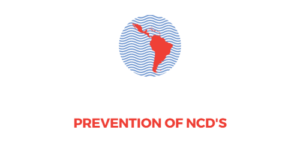LIFESTYLE & PREVENTION OF
Non-communicable diseases
Focus on Latin America and the Caribbean
Willemstad, Curaçao – February 23-25, 2024
MEET LEADING LIFESTYLE MEDICINE EXPERTS
In a serious endeavor to turn the tide, Caribbean Prevention Center is organizing the inaugural conference on Lifestyle Medicine in Latin America & the Caribbean (LAC). 44 leaders in their field of expertise, will participate as speaker, panelist or chairman during the event. Attend, discuss and learn!
Our aim is to promote regional collaboration through developing best-practice strategies for disease prevention through lifestyle measures. We believe that this unique conference will serve as a catalyst in the development of an innovative approach to addressing chronic conditions in the LAC region.
Conference details
February 23-25, 2024
World Trade Center, Curaçao, Willemstad
44 Speakers, panelists & chairmen from 24 countries
Simultaneous translation to Spanish is available
7 Sessions spread over 3 days
Poster sessions during lunch & breaks
objectives of the conference
Exchanging ideas. Promoting collaboration. Cross-Fertilization
Promoting NCD Prevention
The focus is on early-stage disease management, risk factors, and preventive measures.
Exchange of Ideas and Strategies
Leaders from Latin American and Caribbean countries will gather to exchange ideas, strategies, and approaches related to NCD prevention. The conference provides a platform for sharing insights and experiences among experts in the field.
Effective Digital Guidance
One of the key objectives is to explore and disseminate effective methods for utilizing digital platforms to guide the general population in NCD prevention. This includes strategies for engaging individuals and promoting the significance of regular screenings.
Interdisciplinary Collaboration
The conference seeks to foster interdisciplinary collaboration by bringing together representatives and specialists from diverse fields. This collaboration aims to address common challenges such as poverty and malnutrition, which impact the health and well-being of the population.
Networking and Social Interaction
The conference provides opportunities for leaders from different countries and disciplines to network and interact in a relaxed environment. This aspect aims to promote connections, mutual understanding, and potential collaborations beyond the confines of academic discussions.
Regional Focus
The conference acknowledges the shared challenges and opportunities for collaboration in Latin America and the Caribbean. By encompassing both regions, the conference aims to address the specific needs and context of these areas.
Conference Session Topics
In 3 days 7 sessions by 44 speakers from 24 countries on Lifestyle Medicine
Session 1: Health system innovation
This session on Health System Innovation will cover health governance for NCDs, health equity, and social determinants in the LAC region. Discussions will focus on the role of politics in implementing research and driving policy change in public health. The importance of teaching Public Health will be emphasized. An intriguing case study of the high number of centenarians in Martinique will be explored, along with its costs and benefits for the island. Additionally, there will be a panel discussion on the endothelium’s significance in cardiovascular health and its implications for public health strategies.
Session 2: Comprehensive approach to CVD prevention
Session 2 will discuss a comprehensive approach to preventing cardiovascular disease (CVD) with a focus on fighting hypertension in low- and middle-income countries (LMICs). The role of implementation science and the HEARTS Initiative for the Americas in this endeavor will be highlighted. Participants will explore multicomponent interventions targeting (Pre)-Hypertension in underprivileged populations. Moreover, the session will delve into the influence of environmental factors on health behaviors, risk factors, and diseases. A panel discussion will provide diverse perspectives on these critical topics. Finally, the session will touch upon health system reform and innovation as a means to achieve better health outcomes.
Session 3: Lifestyle Medicine
Session 3 will focus on Lifestyle Medicine (LM) and its impact on health and well-being. The discussions will cover the importance of Exercise Medicine in promoting a healthy lifestyle and its benefits for overall health. Additionally, the session will delve into the connection between Sexual Health and Lifestyle Medicine, emphasizing how lifestyle choices can influence sexual well-being. Participants will gain valuable insights into adopting healthier lifestyles and understanding the relationship between lifestyle factors and various aspects of health.
Session 4: Lifestyle Medicine & Respiratory diseases
Session 4 will focus on the intersection of Lifestyle Medicine and Respiratory Diseases. The discussions will revolve around the respiratory impact of household pollution and the importance of addressing Pre-COPD (early stages of Chronic Obstructive Pulmonary Disease) through lifestyle interventions. The session will shed light on the impact of COPD on public health in Latin America, offering future perspectives for improved management.
A panel discussion will focus on Smoking Cessation, emphasizing its significance in reducing respiratory health risks. Moreover, participants will explore the relationship between Nutrition and the Microbiome, understanding how dietary choices can influence respiratory health. The session will also address the role of environmental carcinogens in respiratory diseases, highlighting the need for preventive measures and lifestyle changes to promote respiratory well-being.
Session 5: Cancer Prevention
Session 5 will center on Cancer Prevention and explore various aspects related to this critical area of healthcare. Participants will delve into the genetic causes of cancer in the Caribbean, gaining insights into the region’s unique challenges and opportunities for prevention. The session will highlight the significance of population screening in Curacao, showcasing effective strategies for early detection.
Furthermore, the discussion will revolve around the development of an information system for early cancer detection, enabling more timely interventions. The Latin American Code Against Cancer will be a key focus, offering a comprehensive framework for cancer prevention and control in the region.
A panel discussion will provide diverse perspectives on cancer prevention, bringing together experts to discuss innovative approaches and challenges in this field. Overall, the session aims to equip participants with valuable knowledge and strategies to combat cancer effectively and promote early detection for better patient outcomes.
Session 6: Nutrition & Overweight
Session 6 will center on Nutrition and Overweight, addressing various critical aspects related to combating obesity and promoting healthier dietary habits. Participants will explore the hidden nutritional challenges in addressing obesity in the Caribbean, understanding the region’s unique factors influencing this issue. The Barbados School Nutrition Policy will be highlighted as an effective approach to promote better eating habits among the younger population.
The session will delve into experimental nutritional interventions in rural Guatemala, shedding light on innovative strategies for improving nutrition in underserved areas. Food labeling and school nutrition in Chile will be discussed, showcasing how policy measures can impact dietary choices and health outcomes.
Moreover, the link between Diet, Cancer, and Cardiometabolic Diseases will be examined, emphasizing the role of nutrition in preventing these health conditions. The session will also address the challenges of overweight in poverty areas and among immigrants in The Netherlands, offering insights into tackling health disparities.
A discussion involving two individuals sharing their experiences of losing weight, one with success and the other with struggles, will provide valuable perspectives on weight management journeys. Finally, participants will explore the concept of nutritional transition, understanding how dietary patterns evolve with economic and social changes.
Overall, the session aims to provide a comprehensive understanding of the complex relationship between nutrition, overweight, and health, offering effective strategies to promote healthier lifestyles and combat obesity.
Session 7: Diabetes
Provides a brief overview of Lifestyle Medicine’s role in preventing and treating diabetes, with a focus on pre-diabetes in adolescents and the connection between obesity and diabetes. The session emphasizes lifestyle factors as key in managing diabetes and highlights the importance of early intervention for pre-diabetes in adolescents. Additionally, the panel discussion delves into the relationship between obesity and diabetes, highlighting obesity as a significant risk factor for type 2 diabetes.

